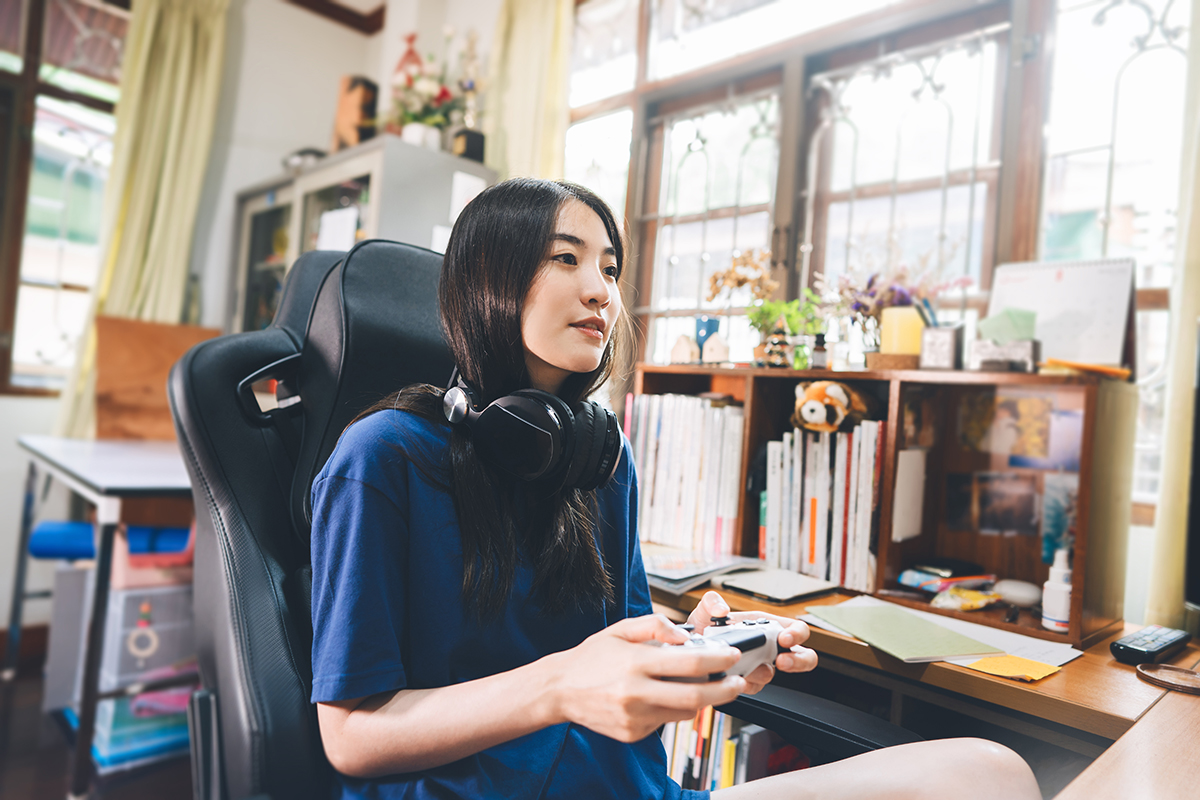In case you hadn’t heard: video games are big. What were once pixelated novelties just a few decades ago have transformed into a global industry comprising 2 billion gamers and an expected $250 billion in revenue by the end of 2025.
This dramatic size has not come from nowhere – the nature of video games has evolved to take on a new significance in people’s lives: in the communities we create, the ways we decompress after a long day, even the movies and TV shows we watch. As video gaming has become more mainstream among all age groups (no, it’s not just for teenagers avoiding their homework), it’s important that we understand how it impacts our lives – specifically, our mental health.
So, how do video games affect our mental health?
The first answer is: “it depends.” The second one, though, might surprise you. Read on to find out more.
Excessive Video Gaming Can Be Bad for Mental Health
First, video games themselves are not necessarily good or bad for our mental health – it depends on how we use them.
Unsurprisingly, excessive use of video games has been shown by some studies to have a connection to problems with sleep, depression and anxiety. This is true for just about anything in our lives: more is not always better, and too much of a good thing – food, socializing, exercise – can have negative impacts on our well-being.
There’s even a name for the condition in which video games – online games, in particular – take on an outsized and detrimental role in one’s life: Internet Gaming Disorder (IGD). This condition is frequently associated with depression, hostility, social anxiety, cravings and loss of control in one’s video gaming.
Excessive use can also resemble some of the impacts of addiction: compulsive use, lack of enjoyment in use, reduced functioning in one’s life, higher levels of distraction, problems with relationships and employment, and more.
This describes the extreme negative end of the spectrum – how about some good news about video games?
Casual Video Gaming Can Have Mental Health Benefits
Like social media, there can be benefits to video games, when they’re used appropriately and in moderation.
Some of these benefits include:
- Improved focus, multitasking and working memory
- Opportunities to build community and connect with other people
- Alternative avenues for social interaction, which is especially important for those who face challenges in connecting in person, whether due to physical or emotional safety, anxiety or distance
- Sharpened critical thinking and problem solving
- Stronger spatial awareness
- A sense of accomplishment when the game goes well
- More robust emotional resilience when the game does not go well.
Now, how about that surprising part we mentioned earlier?
Video Games Can Be Used for Therapy
Some video games, when used by trained clinicians, can actually be incredibly effective ways to engage people in therapy.
Take, for example, WellPower’s child therapy team that uses the wildly popular game Minecraft to create and connect in safe spaces. Under the guidance of WellPower clinicians who specialize in services for children and families, program participants create a community in the game that allows them to express what’s going on in their real-world lives in a way that feels more comfortable. Even things like the way in which they build their houses can signal to the clinicians where there might be topics to focus on in their next therapy session together.
Why is this so effective? For one thing, the pandemic has shown us that connecting electronically can just be easier – less time to take off work or school, a dramatically shorter commute, using the devices we’re already on so often anyway.
Another benefit is that connecting via video games can remove many of the psychological and emotional barriers that can sometimes come with in-person therapy; people who experience certain mental health concerns often find it easier to talk about what they’re going through in a less direct way. Video games provide another world that takes some of the pressure off having honest conversations.
How to Use Video Games Positively
Knowing that moderate gaming might actually be good for us, how can we maximize the benefits of video games? Here are a few tips:
- Keep the pressure low. It can be hard not to see gaming as a high-stakes situation, particularly when competitive gaming is a growing industry. But this can lead to increased stress and negative impacts when the game doesn’t go the way we want. Try to think of the game as a way to have fun or decompress, and nothing more.
- Moderate your gaming. Casual video game use has been shown to offer the most benefits. When gaming starts to interfere with other aspects of life, from work or studying to spending time with family to building other professional and life skills, it may be time to decrease the amount of time you spend on it.
- Focus on games that contribute to positive emotions. While one of the biggest draws of video games is their ability to excite us, you might notice that some types of games leave you feeling more anxious – this would be a signal that this genre might not be a good fit for your mental health. If video gaming is something you’d like to continue, try another type of game – there are lots of options these days.
- Make it social (if that’s what you’re looking for). Many video games lend themselves to building communities and bringing people together. If you feel energized by social interaction, try looking for ways to game with others – whether in person or online. Of course, if you get enough “people time” in other areas of your life, playing a game solo can also be great for your mental health.


